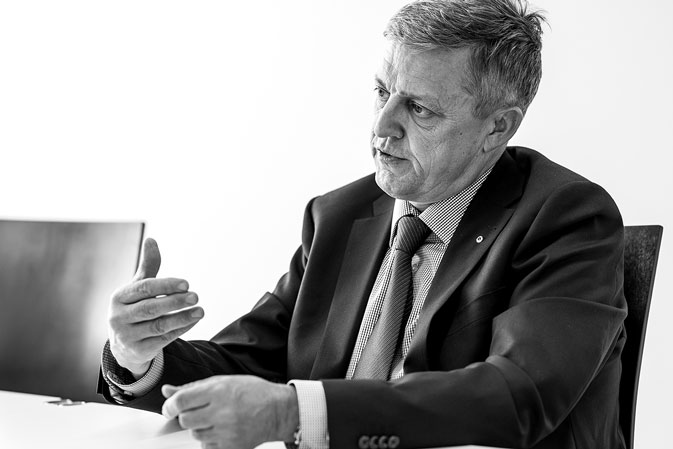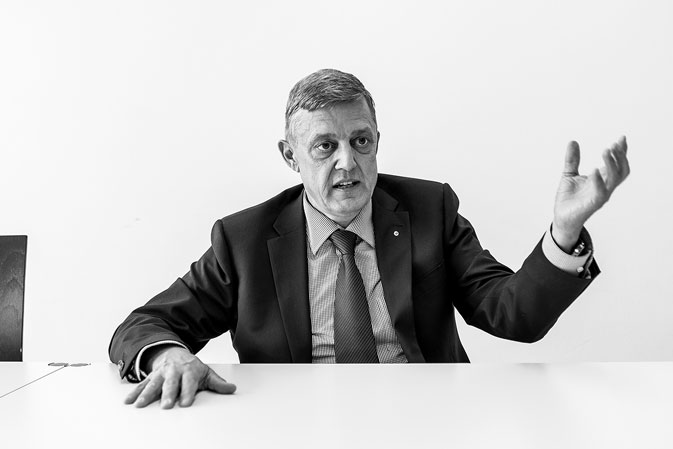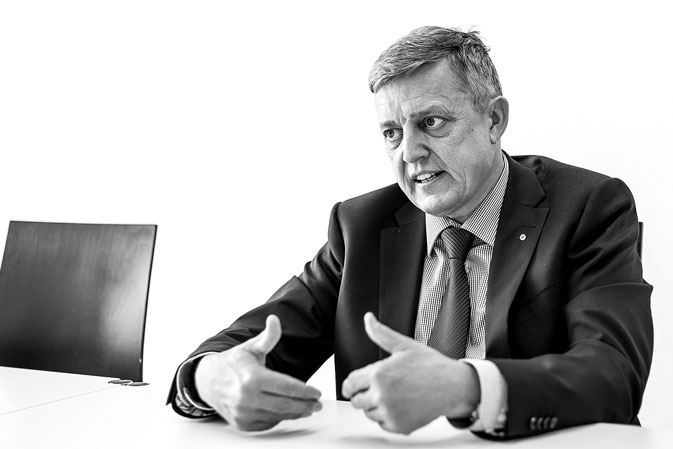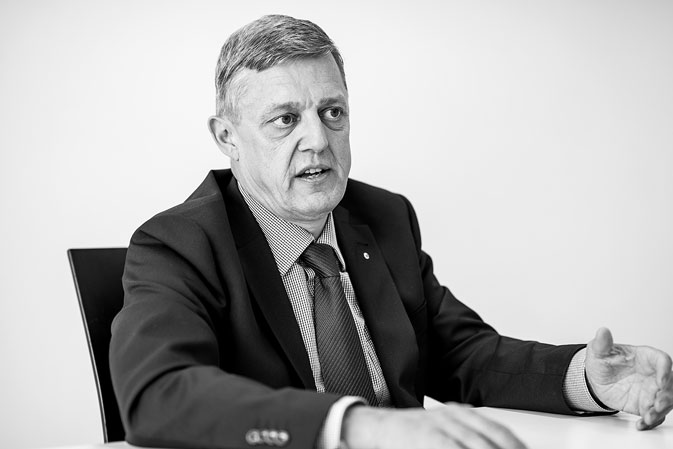echo interview with Pius Bernet, financial director of the Swiss Paraplegic Foundation, Nottwil
Mr Bernet, the Swiss Paraplegic Centre (SPZ) is regarded as the leader in the field of the holistic rehabilitation of people with spinal paralysis or paraplegia. Who are SPZ's main commercial competitors?
Pius Bernet: SPZ is a wholly-owned subsidiary of the Swiss Paraplegic Foundation (SPS) and a specialist clinic for the treatment of spinal paralysis as a result of an accident or illness. The Foundation has charged the clinic with ensuring the best possible rehabilitation of paraplegics in Switzerland. So our mandate is of a public-service, non-profit nature. Besides our organisation, there are only three other paraplegia treatment centres, namely Balgrist Zurich, REHAB Basel and Suva Klinik Sion. We see these centres as regional care providers, whose activities complement our own and with whom we collaborate very closely. Since all of us want to achieve the best possible treatment for paraplegics in Switzerland, any commercial competition that exists between us is only limited.
How does the SPZ differ from the other centres?
We’re the largest acute and rehabilitation clinic for spinal injury patients in Switzerland. This means that we admit the most serious and complex cases. In other words, we attract all acute-care and rehabilitation patients who cannot be treated elsewhere, whether this be for medical or economic reasons. Our credo at SPZ is not the maximisation of profit but rather the provision of patient care. Having said that, in order to make the best possible use of the donations entrusted to us, we do attach great importance to a high degree of business efficiency.
Does SPZ receive subsidies from the public purse?
No. Our clinic is on the so-called hospital list. That is to say, we admit all patients covered by medical and accident insurance. Under the Health Insurance Act, the cantons fund a portion of our clinic’s costs as they do with all other hospitals. So this funding constitutes payment for services, not a subsidy.




